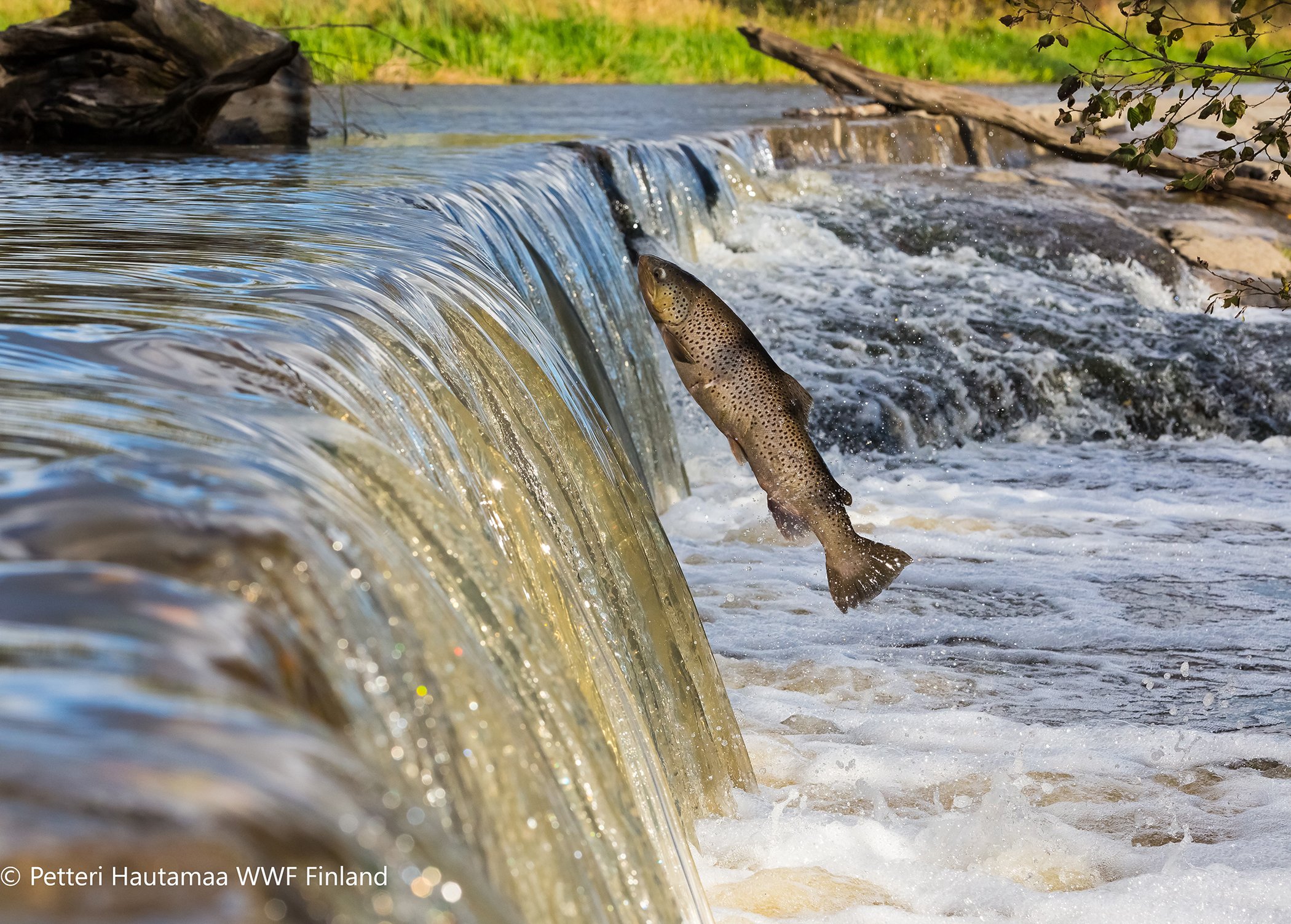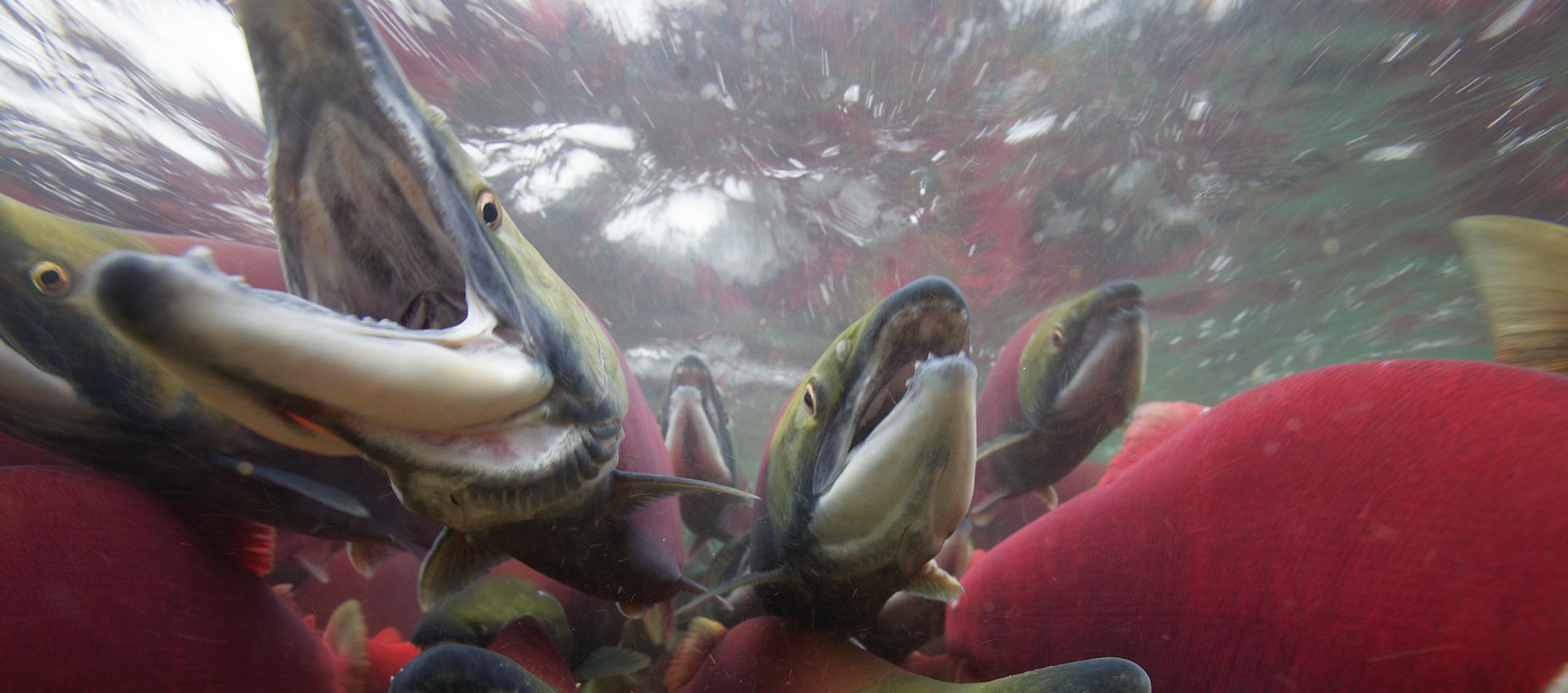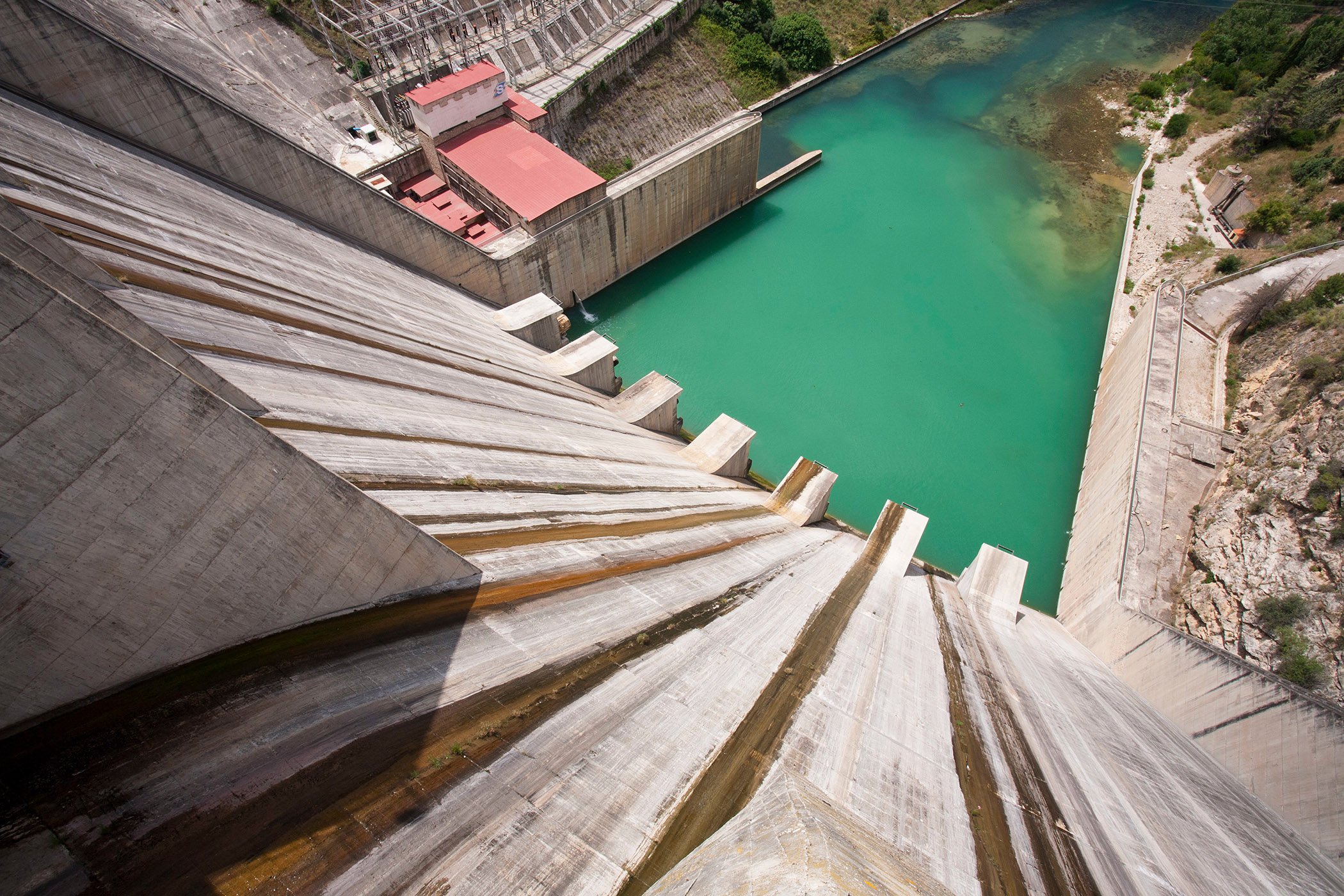A third of freshwater fish species could go extinct in the decades ahead unless measures are taken to curb human activities that destroy their habitats, according to a new report by a coalition of 15 nonprofits led by the World Wildlife Fund (WWF).
The report, titled World’s Forgotten Fishes, says that migratory freshwater fish species have declined by 76% since the 1970s, while “mega fish” — those weighing more than 66 pounds — have plummeted by 94%. Behind this staggering loss of fish are a number of industrial practices that receive little scrutiny relative to their environmental impact, the report found.
“Freshwater fish species are threatened with extinction due to a devastating combination of threats from damming rivers to draining wetlands, abstracting too much water for irrigation to releasing too much untreated waste, from unsustainable and damaging fishing practises to introductions of invasive non-native species – and, of course, the escalating impacts of climate change,” the report said.
The report's authors are calling on countries to adopt the principles of the Global Biodiversity Outlook, outlining a six-step Emergency Recovery Plan to reverse the catastrophic decline of freshwater fish species.
The steps include: Let rivers flow more naturally; improve water quality in freshwater ecosystems; protect and restore critical habitats; end overfishing and unsustainable sand mining in rivers and lakes; prevent and control invasions by non-native species; and protect free-flowing rivers and remove obsolete dams.
The report both advocates for the protection of freshwater fish and, more simply, encourages readers to appreciate the “dazzling” array of these aquatic animals, many of which have evolved over millions of years.
In many parts of the world, they provide a safety net for the most vulnerable people in terms of food and protein supply.
“The lineages of some of these fishes are so deep, they’ve lived on this earth at the time of dinosaurs,” Michele Thieme, WWF's lead freshwater scientist and co-author of the report, told Global Citizen. “We’re still on the cusp of our knowledge of the diversity of life within fresh waters. On average, 104 species [of freshwater fish] have been discovered in South America per year over the last 10 years and we’re still finding species. These aren’t aquatic insects; these are vertebrates.”
The authors of the report describe minnows in the peat swamps of Indonesia that weigh less than a grain of rice, and dog-eating catfish that swell to over 700 pounds in the Mekong river.
Even with extreme examples like these, it’s hard to capture the breadth. Worldwide, there are more than 18,075 species of freshwater fish, which is more than the number of fish species living in the ocean, even though marine areas account for 96.5% of the earth’s water.

The diversity of freshwater fish owes to the variety of available habitats. From familiar spaces like rivers and ponds to more obscure areas like swamps and caves, fish can be found in almost any body of water. Despite their abundance, however, the general public knows little about them.
“Freshwater fish often live in murky waters that we can’t see through as opposed to coral reef fisheries, where it’s very transparent water,” Thieme said. “In the rivers and lakes, there’s all this life underwater that we just don’t know is there.”
The report notes that fish are indicator species, meaning their health indicates the overall health of an ecosystem. While people may not always notice freshwater fish, their absence would ripple across ecosystems and food chains, causing devastating consequences. Currently, more than 200 million people rely on freshwater fish as their primary source of animal protein. Freshwater fisheries provide livelihoods for 60 million people worldwide, generating $38 billion in economic value just in terms of food.
But freshwater fish are not invulnerable. Already, 80 fish species have been declared extinct, including 16 in 2020, the report says.
“When we lose species we don’t know fully what happens,” Thieme said. “There’s direct species loss, but there’s also the loss of fundamental ecosystem services that healthy freshwater ecosystems provide for humans. In many parts of the world, they provide a safety net for the most vulnerable people in terms of food and protein supply.”
How Can We Save Freshwater Fish From Extinction?

The COVID-19 pandemic has shown the limits of an economic model that views the natural world as a commodity to be exploited. After all, the virus likely originated because human development encroached upon animal habitats, allowing a zoonotic disease to jump species.
In the aftermath of this ongoing tragedy, countries have the opportunity to forge a new path that recognizes the value of the environment and protects it from further destruction.
The WWF report argues that this new outlook must include freshwater fish and the bodies of water they rely upon.
The environment-as-commodity model has resulted in bodies of water being damned, dredged, polluted, and sucked dry for industrial purposes. Rivers are viewed “as water pipes for cities, industry, agriculture and power” and lakes are seen as municipal and industrial dumping grounds.
Without adequate environmental protections, activities that devastate ecosystems will keep happening.
Sand mining, or the extraction of sand often to be used in manufacturing, is one example.
“Sand mining changes the entire morphology of the river itself,” Thieme said. “It literally changes the habitat for the fish. Fish may be using the rocks or gravel on the bed of a river for parts of their lifecycle like spawning, breeding, or feeding, and when the sand extraction machines come in and destroy that then that habitat is no longer available.”

Besides water, sand is the most used resource in the world. Without limits on this practice, sand mining will keep destroying rivers.
Only a third of rivers, meanwhile, are still free-flowing, unobstructed by dams that disrupt water flow and natural ecological processes. Unless holistic environmental factors are considered by policymakers, then harmful dams will continue to get approved.
The future of freshwater fish, entire ecosystems, and human communities depends on people, companies, and governments recognizing the many “hidden benefits” of bodies of water that are taken for granted, such as supporting ecosystems, providing drinking water, and enabling local economies.

Recognizing these benefits would all but necessitate the six-step action plan described by WWF because bodies of water are finite and fragile; they can't withstand business-as-usual practices.
Freshwater fish may hide amid dense cords of algae or swim into coves away from the human eye, but their lives are foundational to ecosystems.
“It’s going to take all levels for this to really be successful,” Thieme said. “We need the commitments of governments, local activists, and everyday citizens of all levels to protect rivers and healthy freshwater ecosystems into the future.”